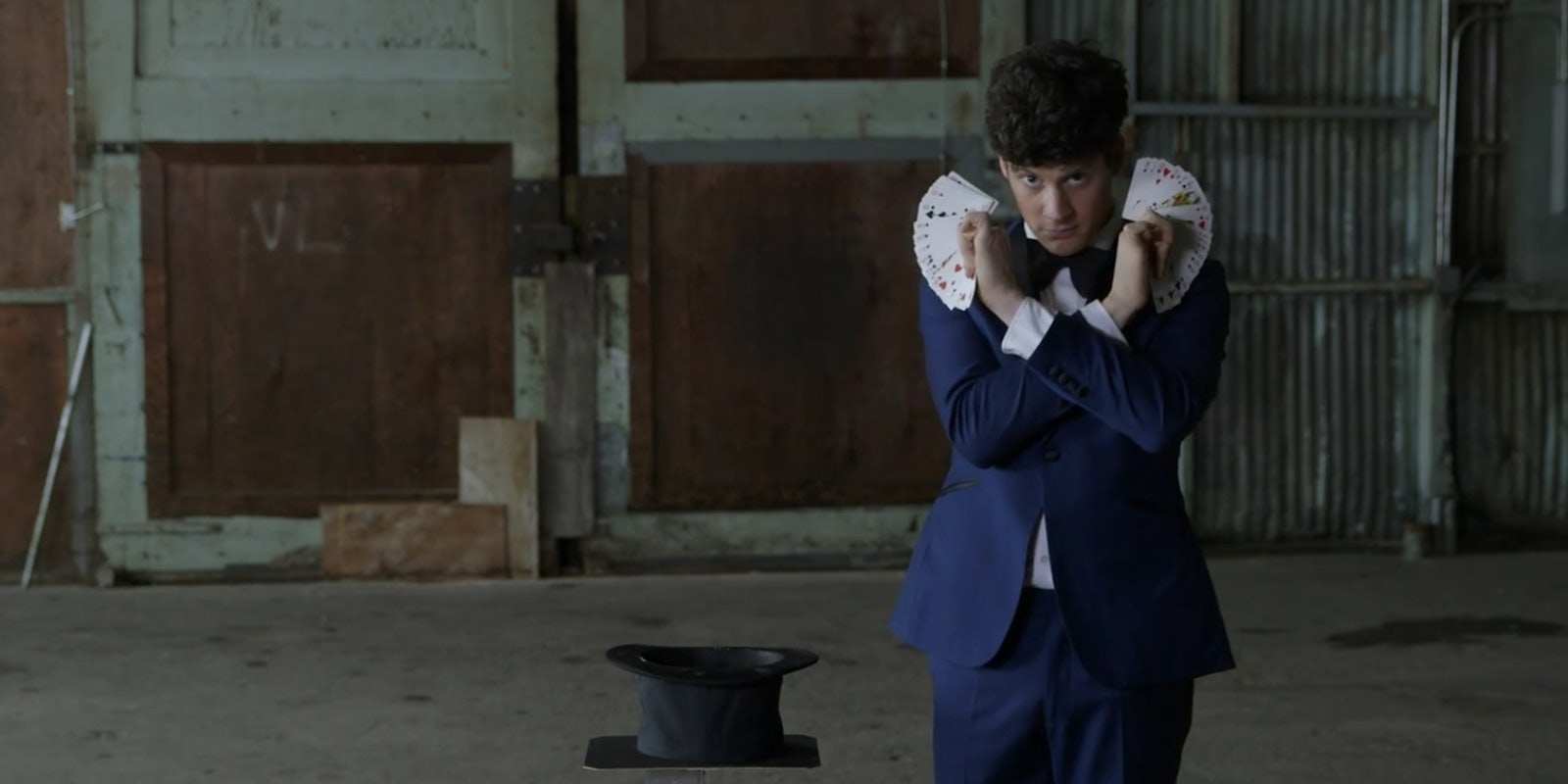It’s a lamentable truth that as one grows older, many of the mysteries that absorb us in our youth begin to dissipate. They are explained away or revealed to be mythic or fraudulent. It’s a damn shame, because things are pretty boring without any sort of wonder or intrigue.
So it’s always somewhat disheartening to see a precocious youngster prematurely breaking down these walls and demanding answers when they should just be musing. You want to shout: “Wait! It’s too early! You can’t go back, you know? Over here there’s just working and paying taxes and filling in forms. It’s terrible.”
But of course you say nothing, as it’s just not done. Nor is it really possible to keep a lid on a thing like knowledge if you believe you have someone’s best interests at heart.
And there’s a moment in The Impossibilities—Anna Kerrigan’s eight-part, gently comedic webseries—where this happens. A young girl at her own birthday party acts unimpressed at one of the hired magician’s tricks. The illusion wasn’t real. She has a book. She knows how it was done.
The magician, Harry (Ashley Springer), wants to explain that if the apparent impossibility of the trick doesn’t astound, then at least the method should. But he’s conflicted. He’s stuck in his role as a sort of quasi-babysitter and doesn’t want to offend, and what’s more, the know-it-all has already left the room, smug in her unmitigated knowledge.
But more problematically, you get the feeling that Harry doesn’t really believe what he’s saying. He’s doing it out of reflex. Arguing the existence of wonder and magic is a tough sport at the best of times, nigh on impossible when the advocate of the defense doubts his own client. Harry and The Impossibilities’ other protagonist—lesbian yoga instructor Willa, played by Kati Rediger, Springer’s real wife—are two characters who are struggling to locate some sort of joy in their day-to-days. They have, as Kerrigan told the Daily Dot, “both had their dreams crushed by the realities of their lives but they still hope to find magic.”
And it’s that “hope” that drives the series. Or rather, the question that accompanies it. Can you ever actually rediscover that old feeling of wonder, the spark of amazement and admiration, if you’ve come to believe that it’s all just a big trick?
“As humans, we are all curious to know how things work—especially the things that amaze us,” said Kerrigan. “That, like magic, seem beyond explanation. But as Harry says, ‘Once you know how magic works, it’s no longer magic.’ And hey, that’s kind of a great metaphor for becoming an adult, right? I know that as I’ve gotten older, and supposedly wiser, less and less things amaze me. I experience less awe-creating impossibilities. And I think that’s something that both Willa and Harry struggle with in the series.”
And it’s a struggle that finds this series at its most relatable. Many people sprout platitudes about finding “more in life” without the hint of an idea as to what they are looking for. But what a lot of people are unable to come to terms with is the discordance between those impossibilities and what they now know. Or rather, a product of how they now “know better.”
It’s a sure-footed sign of a strong series, and Kerrigan has enmeshed magic throughout The Impossibilities to demonstrate this. Each episode begins with a short, captivating routine from Harry—Springer has been a professional magician since the age of nine and it shows—that is thrillingly poised to call into question our very understanding of what is indeed possible. It is a temporary feeling; our reason soon gets the better of us, but it’s brilliant and provoking while it lasts.
“When a magician succeeds in defying the known laws of the world through magic, he creates a feeling of impossibility in his audience,” said Kerrigan. “They know it shouldn’t be possible, and yet their senses have perceived that it is. To quote the magician, Simon Aronson, ‘The impossible is as wonderful as it is rare.’”
Screengrab via The Impossibilities/Vimeo


